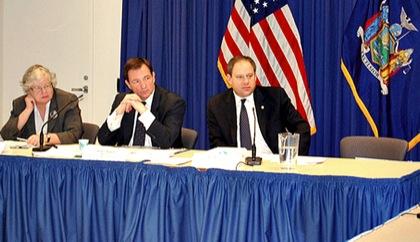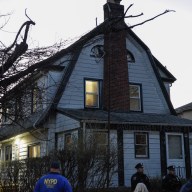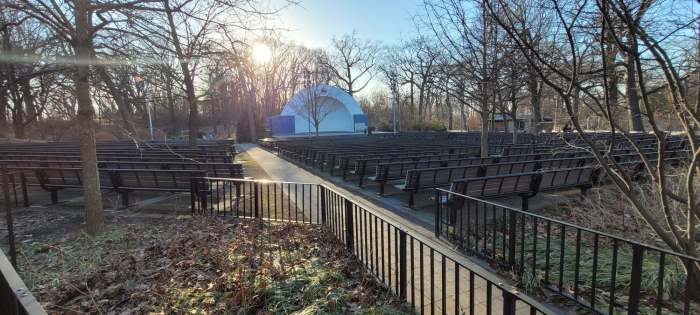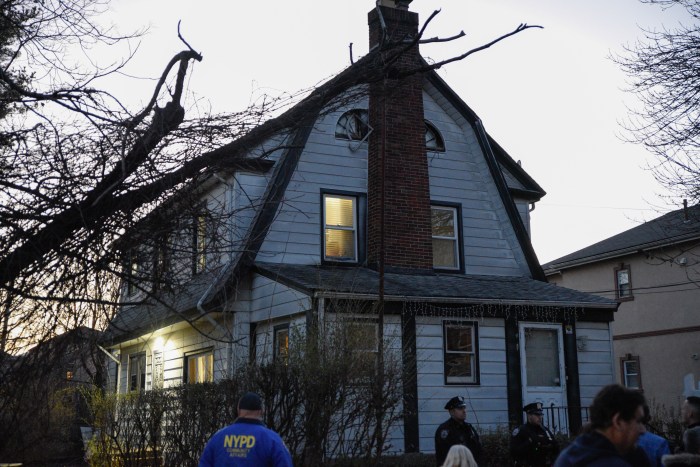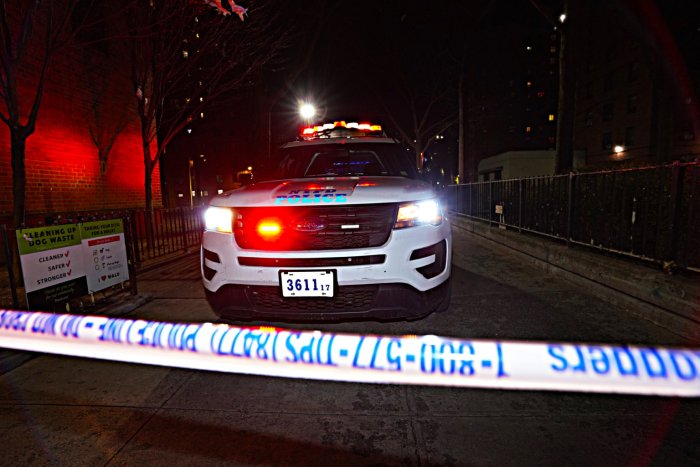By Anna Gustafson
Queens and city nonprofits are one step closer to being able to access information and resources for security purposes after state Assemblyman Rory Lancman (D-Fresh Meadows) and state Sen. Toby Stavisky (D-Whitestone) held a hearing last week to solicit testimony on the needs of institutions that face an increased risk of a terrorist attack.
The Dec. 15 hearing in Manhattan comes after Gov. David Paterson passed the Non-Profit Homeland Security Preparedness Study Act, which was sponsored by Lancman and Stavisky, this summer. The legislation commissioned the state Office of Homeland Security to study and report on the security needs of nonprofit institutions to determine how state officials can best help them prepare for potential attacks.
“New York state is home to thousands of nonprofit cultural, religious and educational institutions which are at an increased risk of terrorist attacks since 9/11, and this legislation is aimed at assessing and strengthening their security,” Lancman said. “Today’s hearing was an important step in the process of ensuring that our institutions get the support they need.”
A number of organizations from throughout the city testified at the hearing, also held by the Office of Homeland Security, including the Northeast Queens Jewish Community Council.
Gail Eisenberg, executive director of the Northeast Queens Jewish Community Council in Little Neck, said her group’s meetings and events were easily accessible on its Web site — an important resource for the public but worrisome should an attacker want to gain information about their happenings.
“Those who might want to harm us or our members or those who visit us can find us, including when we have events that attract significant participation,” Eisenberg said in her testimony. “The Y already instituted certain security measures that enables it to employ and prevent a vehicle attack, but that does not mean we do not want to do more.”
The OHS’s security analysis is due by March, after which Lancman said legislators will craft further legislation or adopt programs to aid the nonprofits. While organizations may not be able to access a great deal of financial help from the state because of the budget deficit, Lancman did say groups will more easily be able to get in touch with the state’s security experts to help them beef up security, thanks to the study act.
Lancman and Stavisky are now asking nonprofits and the public to comment on security needs in an online survey, which can be accessed at surveymonkey.com/s/RGHX72N.
“We are grateful to these institutions for sharing their needs and challenges at this hearing,” Stavisky said. “Those who know best about the homeland security needs of nonprofit organizations are those who run the cultural, religious and education institutions. We turn to these leaders and ask that they complete this security needs assessment survey.”
Reach reporter Anna Gustafson by e-mail at agustafson@cnglocal.com or by phone at 718-229-0300, Ext. 174.

